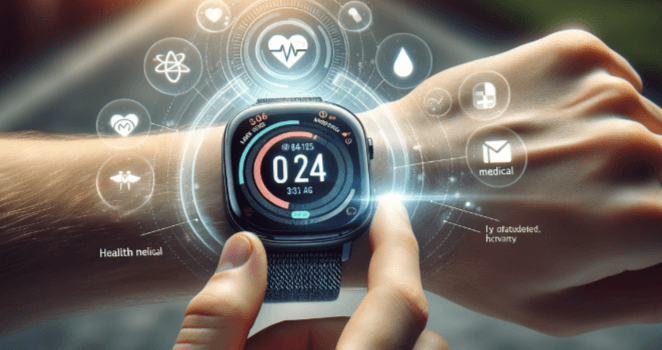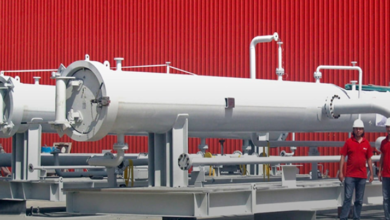What are the new developments in wearable technology, and how are they improving personal health management?

Introduction
Wearable technology has come a long way since the advent of simple fitness trackers. Today, the field is buzzing with innovative advancements that are not only enhancing convenience but also significantly improving personal health management. These cutting-edge devices are becoming integral tools in our daily lives, offering a range of health benefits from monitoring vital signs to predicting potential health issues. In this article, we will explore the new developments in wearable technology and their impact on personal health management.
The Evolution of Wearable Technology
Wearable technology has rapidly evolved over the past decade. Early devices primarily focused on fitness tracking, counting steps, and monitoring basic activity levels. Today, wearable technology encompasses a broad array of devices including smartwatches, fitness bands, smart clothing, and even implantable devices. These advancements have transformed wearables into sophisticated health management tools.
Smartwatches: The Hub of Health Monitoring
Modern smartwatches have become multifunctional health hubs. They offer a plethora of features such as heart rate monitoring, sleep tracking, and ECG readings. Some models also include blood oxygen level sensors and fall detection. These capabilities allow users to keep a close eye on their health metrics and receive real-time feedback.
Fitness Bands: From Steps to Comprehensive Health Data
Fitness bands have also seen significant upgrades. Beyond step counting, they now provide insights into various health metrics including calories burned, distance traveled, and activity levels. Advanced fitness bands come equipped with features like heart rate variability tracking and guided breathing exercises, promoting overall wellness.
Smart Clothing: Integrating Technology into Apparel
Smart clothing is an emerging trend in wearable technology. These garments are embedded with sensors that monitor different aspects of the wearer’s health, such as muscle activity, posture, and hydration levels. Smart clothing offers a seamless way to integrate health monitoring into everyday life without the need for additional devices.
Implantable Devices: The Next Frontier
Implantable devices represent the cutting edge of wearable technology. These devices are designed to be placed inside the body, providing continuous health monitoring and even administering treatments. For example, implantable glucose monitors can provide real-time data for diabetes management, while cardiac monitors can detect and alert users to potential heart issues.
Health Monitoring Beyond the Basics
Today’s wearables are capable of much more than just tracking steps and calories. They can monitor a range of health indicators including blood pressure, body temperature, and respiratory rate. This comprehensive monitoring enables early detection of potential health issues, allowing for timely intervention and management.
Advanced Sensors: Accuracy and Reliability
The advancement of sensor technology has significantly improved the accuracy and reliability of wearables. Modern sensors can detect minute changes in physiological parameters, providing precise data that is crucial for effective health management. These sensors are now smaller, more efficient, and integrated seamlessly into wearable devices.
AI and Machine Learning: Personalized Health Insights
Artificial Intelligence (AI) and Machine Learning (ML) are transforming how wearable devices interpret health data. These technologies enable wearables to learn from the user’s data, providing personalized insights and recommendations. For instance, AI can analyze sleep patterns and suggest lifestyle changes to improve sleep quality.
Wearable Technology for Chronic Disease Management
Wearable technology is proving to be particularly beneficial for managing chronic diseases. Devices designed for diabetes management, cardiovascular health, and respiratory conditions offer continuous monitoring and real-time alerts. This allows users to manage their conditions more effectively and make informed decisions about their health.
Mental Health Monitoring: Beyond Physical Health
The focus of wearable technology is expanding to include mental health. Devices now offer features like stress tracking, guided meditation, and mood monitoring. By providing insights into mental well-being, wearables help users manage stress and maintain emotional balance.
Enhanced Connectivity: Real-Time Health Data Sharing
Enhanced connectivity features in wearable devices allow real-time sharing of health data with healthcare providers. This facilitates remote monitoring and telemedicine, ensuring that users receive timely medical advice and interventions without the need for frequent doctor visits.
Wearable Tech in Sports and Fitness
Athletes and fitness enthusiasts are benefiting immensely from wearable technology. Devices designed for sports performance tracking offer detailed analytics on various parameters like heart rate, oxygen levels, and muscle activity. This data helps in optimizing training and preventing injuries.
Innovative Materials: Comfort and Durability
The use of innovative materials has improved the comfort and durability of wearable devices. Flexible electronics, waterproof materials, and hypoallergenic components ensure that wearables are suitable for continuous use, even in challenging conditions.
Battery Life Improvements: Longer Usability
One of the significant challenges with early wearables was limited battery life. Recent advancements in battery technology have extended the usability of these devices, allowing for longer periods between charges. This is particularly beneficial for continuous health monitoring.
The Role of Big Data in Wearable Technology
Wearable devices generate vast amounts of health data. Big Data analytics plays a crucial role in processing and interpreting this information. By analyzing trends and patterns, Big Data helps in understanding population health and developing personalized health interventions.
User-Friendly Interfaces: Ease of Use
Modern wearable devices come with user-friendly interfaces that make health monitoring accessible to everyone. Intuitive apps and dashboards provide easy-to-understand health metrics and actionable insights, empowering users to take control of their health.
Integration with Health Apps and Services
Wearable technology seamlessly integrates with various health apps and services. This interoperability allows users to synchronize their health data across multiple platforms, providing a comprehensive view of their health and facilitating better health management.
Wearables in Preventive Health Care
Wearable technology plays a vital role in preventive healthcare. By providing continuous monitoring and early detection of health issues, wearables help in preventing diseases before they become severe. This proactive approach to health management is crucial for maintaining overall well-being.
Regulatory Approvals and Standards
As wearable technology advances, regulatory approvals and standards are becoming increasingly important. Ensuring that devices meet safety and efficacy standards is crucial for user trust and the overall success of wearable health technology.
Challenges and Limitations
Despite the advancements, wearable technology faces several challenges and limitations. Issues such as data privacy, accuracy of measurements, and the need for user compliance can impact the effectiveness of these devices. Addressing these challenges is essential for the continued growth of the industry.
The Future of Wearable Technology
The future of wearable technology is incredibly promising. Innovations such as smart tattoos, flexible electronics, and bio-integrated sensors are on the horizon. These advancements will further enhance the capabilities of wearables, making them indispensable tools for health management.
Real-Life Applications and Success Stories
There are numerous success stories of how wearable technology has positively impacted individuals’ lives. From athletes achieving peak performance to individuals managing chronic conditions effectively, wearables are making a significant difference in personal health management.
The Economic Impact of Wearable Technology
The wearable technology market is booming, with significant economic implications. The demand for these devices is driving growth in the tech and healthcare industries, creating jobs and fostering innovation.
Wearable Tech for All Ages
Wearable technology is not limited to any specific age group. From children to the elderly, there are devices designed to cater to the unique health needs of every age group. This inclusivity ensures that everyone can benefit from the advancements in wearable technology.
FAQs
What are the key benefits of wearable technology in health management?
Wearable technology offers continuous health monitoring, early detection of health issues, personalized insights, and real-time data sharing with healthcare providers, making it a powerful tool for health management.
How accurate are the health metrics provided by wearable devices?
The accuracy of health metrics in wearable devices has significantly improved with advancements in sensor technology. However, it is essential to use devices from reputable manufacturers and consult healthcare providers for critical health decisions.
Can wearable technology help in managing chronic diseases?
Yes, wearable technology is particularly beneficial for managing chronic diseases. Devices designed for specific conditions like diabetes, cardiovascular health, and respiratory issues provide continuous monitoring and real-time alerts, aiding in effective disease management.
What are some emerging trends in wearable technology?
Emerging trends in wearable technology include smart clothing, implantable devices, AI and machine learning integration, mental health monitoring, and the use of innovative materials for enhanced comfort and durability.
How do wearable devices integrate with other health apps and services?
Wearable devices integrate with health apps and services through interoperability standards and connectivity features. This allows users to synchronize their health data across multiple platforms, providing a comprehensive view of their health and facilitating better health management.
What challenges does wearable technology face?
Wearable technology faces challenges such as data privacy concerns, accuracy of measurements, user compliance, and regulatory approvals. Addressing these challenges is crucial for the continued growth and effectiveness of wearable health technology.
Conclusion
Wearable technology is revolutionizing personal health management by offering advanced monitoring, personalized insights, and real-time health data. As these devices continue to evolve, they will play an increasingly vital role in promoting wellness and preventing diseases. The future of wearable technology is bright, promising even more innovative solutions to enhance our health and well-being.





